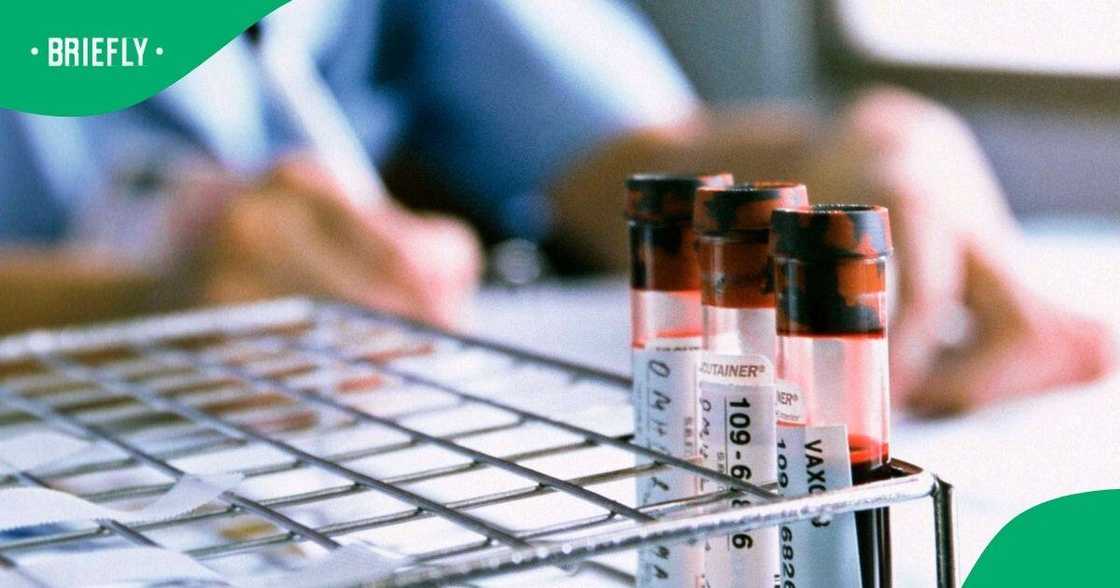SA, Uganda Bi-annual HIV Prevention Injection Prevents Infection in Young Women, SA Enthused: “Men?”
- A new HIV trial in South Africa and Uganda has proven effective in preventing infections in young women
- The study involved a sample size of 5000 participants at 25 sites in South Africa and three in Uganda
- The tests examined whether the lenacapavir PrEP drug provided better protection than two other treatments
- Scientists recorded a 100 per cent efficacy as none of the 2,134 women who received lenacapavir contracted HIV

Source: Getty Images
CAPE TOWN — The scourge of the debilitating human immunodeficiency virus (HIV) could be a thing of the past if a large trial passes in parts of Africa, including South Africa.
A clinical undertaking has taken off showing how a bi-annual injection provided full protection against HIV infection to vulnerable young women.
SA, Uganda HIV bi-annual treatment trial effective

Read also
Gauteng Health MEC criticised for downplaying issues raised in viral video at Helen Joseph Hospital
The study involved 5000 participants at 25 sites in South Africa and three in Uganda.
PAY ATTENTION: Briefly News is now on YouTube! Check out our interviews on Briefly TV Life now!
According to a SABC News report, the pre-exposure prophylaxis drug (PrEP) lenacapavir (Len LA), a fusion capsid inhibitor sold under the brand name Sunlenca, was used in the clinical trial.
It interferes with the HIV capsid, a protein shell that protects HIV’s genetic material and enzymes needed for replication.
The tests examined whether the lenacapavir injection, administered under the skin once every six months, provided improved protection compared to two other daily pills, also forms of PrEP.
PrEP is a general term for the use of medications to prevent the spread of disease in people who have not yet been exposed to a disease-causing agent.
The principal investigator for the South African study, University of Cape Town (UCT) Professor of Medicine Linda-Gail Bekker, said the breakthrough gave hope that a proven, highly effective HIV prevention tool had been developed.
Bekker said in the past 12 months, there were 1.3 million new HIV infections globally.
"Although that’s less than the two million infections in 2010, we are not going to meet the Joint United Nations Programme on HIV/AIDS' (UNAIDS) HIV new global infection target of less than 500,000 in 2025, or potentially even the goal to end AIDS by 2030," Bekker said, despite the new prevention mechanism.
However, she said PrEP was not the only prevention tool.
"It should be provided alongside HIV self-testing, use of condoms, screening and treatment for STIs and contraception access to women.
"Additionally, medical male circumcision should be taken up for health reasons.
New infections still a challenge
Despite these options, the biomedical community had not gotten to the point of preventing new infections, especially among youngsters.
"In eastern and southern Africa, young women bear the brunt of new HIV infections.
"For young people, the daily decision to use a condom or take a pill at the time of exposure during sexual intercourse can be burdensome."

Read also
"We are tired": Sports Minister Gayton McKenzie laments impact of illegal spazas, vows fightback
She said the randomised controlled trial looked at several things.
The first was whether lenacapavir was safe and would provide better protection for women aged 16 to 25 than Truvada F/TDF, a widely used daily PrEP.
The trial also tested whether Descovy F/TAF, a newer daily pill, was as effective as F/TDF. The newer F/TAF has superior pharmacokinetic properties to F/TDF.
During the randomised phase of the trial, none of the 2,134 women who received lenacapavir contracted HIV. Scientists recorded a 100 per cent a.
By comparison, 16 of the 1,068 women (or 1.5%) who took Truvada (F/TDF) and 39 out of 2,136 (1.8%) who received Descovy (F/TAF) contracted HIV.
South Africans' curiosity piqued
Online users received the clinic trial with both excitement and scepticism. Briefly News scoured the comments and looked at a few reactions.
@Judas Iscariot Scheepers wrote:
"What about men?"
@Shoko Dprince Gordy wondered:
"Yes, but why only specifically young ladies? Why not for everyone? Why not the cure?
@Madlamini Sbosh Mosololi questioned:
"Why is it only for women?"
Health Minister confirms 2nd Monkeypox death
In related news, Briefly News reported that former Health Minister Dr Joe Phaahla confirmed a new case and the second death linked to Monkeypox in South Africa.
A 38-year-old Brakpan man in Gauteng was admitted to a hospital in uMgungundlovu, KwaZulu-Natal, presenting with severe symptoms, including extensive lesions and swelling of the lymph nodes.
PAY ATTENTION: Сheck out news that is picked exactly for YOU - click on “Recommended for you” and enjoy!
Source: Briefly News



